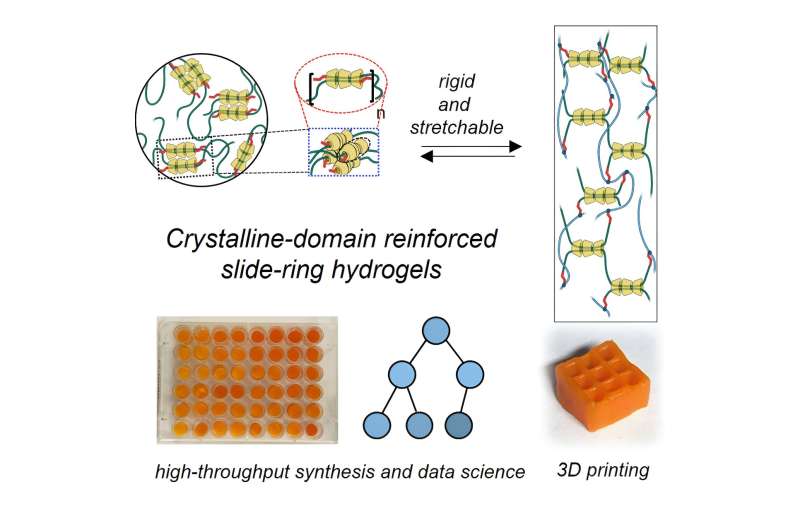by Washington University in St. Louis

Chenfeng Ke, an incoming associate professor of chemistry in Arts & Sciences at Washington University in St. Louis, developed a unique design for tough but stretchable hydrogels, reported Aug. 23 in the journal Chem. The new material is both flexible and durable thanks to a ring-shaped sugar molecule that encases its polymer network and allows it to stretch without sacrificing strength.
Ke can 3D-print the so-called crystalline-domain reinforced slide-ring hydrogels, or CrysDoS-gels. He and his co-authors also created a materials library and offer methods for how the material can be added to existing materials to enhance their durability, such as in plastic additives to enhance the durability for parts in automobiles in the future.
“There are a series of tradeoffs with these traditional plastic materials—they’re usually one or the other,” stretchable or rigid, Ke said. “But if you connect two things with a slidable joint, you have very interesting properties of both.”
The new material is simple and adaptable, Ke said, and can be combined with a variety of hydrogels to improve the properties of different plastics. For example, it could be added to stretchable materials to make them stronger, or to rigid materials to make them more flexible. In this study, the chemists demonstrated a potential application of their newly discovered CrysDoS-gels by 3D-printing them as stress sensors.
“Think of it increasing the lifespan of plastic parts to reduce the waste we produce,” Ke said.
More information: Chenfeng Ke, Reinforced double-threaded slide-ring networks for accelerated hydrogel discovery and 3D printing, Chem (2023). DOI: 10.1016/j.chempr.2023.07.020. www.cell.com/chem/fulltext/S2451-9294(23)00371-6
Journal information: Chem
Provided by Washington University in St. Louis

